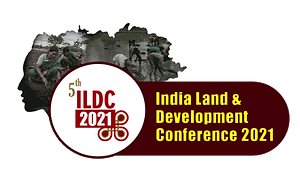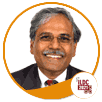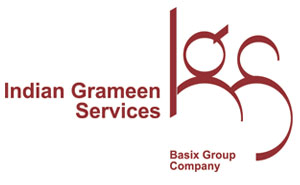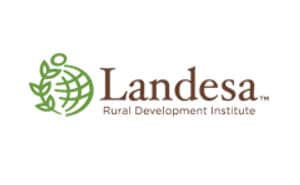ILDC 2021 Agenda
[ivory-search id=”7239″ title=”Session Search”]
22 Nov 2021
Plenary 1 : Dr Haque Plenary 10.00 - 11.30 hours (IST)
Session Organizer:  | |
 Video Link Video Link | |
 Moderator: Moderator:Dr. Shekhar Shah Former NCAER Director General & World Bank Regional Economic Adviser for South Asia |  Govind Kelkar Govind KelkarDirector of GenDev Centre for Research and Innovation, Gurgaon, India |
Mr. Tim Hanstad |  Dr Arabinda Kumar Padhee Dr Arabinda Kumar PadheeCountry Director, ICRISAT |
 Vinod Kumar Agarwal Vinod Kumar AgarwalIAS (Retd). Former Special Chief Secretary. Government of Telangana |
Reflecting Dr Haque in the Land & Development Linkages of the New Reality
Dr T Haque was the founding Chair of the India Land Development Conference (ILDC), the largest land conference in India and South Asia Established by a collaborative initiative of local and global land-institutions, ILDC promotes inter-sectoral and inter-disciplinary conversations on land and development. ILDC’s audience draws in researchers, practitioners, governments, businesses, entrepreneurs and professionals working on or interested in land related issues. It aims to further, intensify and change land conversations, catalyse cross-learning and amplify innovations. By triggering connections and facilitating networking among land-actors and institutions, ILDC contributes to coordinated and impactful research, innovations, advocacy and actions for improving land tenure security and achieving SDGs. 5th ILDC will be held during Nov 21-25 this year online, with a Asia-Day on 21st Nov and Africa-Day on 26th Nov to promote south-south cross learning around land governance issues, practices and innovations.
Fifth ILDC as an event, is dedicated to the memory of Dr Haque (please read here and here) and will begin the India-focussed deliberation on 22nd Nov 2021 at 10.00 AM IST, with a plenary discussing Professor T Haque’s work and contribution to land governance in India, particularly to discuss how is thinking and legacy are more relevant now in the new Reality.
This session will witness participation of a panel of eminent experts— researchers, land administrators and civil society leaders—who have worked with Dr Haque to share their insights and thoughts, in the context of a post-pandemic world, on Dr Haque’s legacy on land issues as India and the world look for economic revival, for achieving Net-Zero emissions through restoration and nature-based solutions and also in ensuring a hunger-free world through sustainable food systems.
T1-S6 : Land Based Development: Overcoming Challenges In Externally-Aided Projects In Customary Land Tenure Regime In NER 13.30-15.00 hours (IST)
| Session Organizer: | |
|  Co Chair: Co Chair:Mr Dimgong Rongmei Secretary, Rongmei Naga Baptist Association (RNBA)-Manipur |
|  Mr Supongnukshi, IFS Mr Supongnukshi, IFSProject Director (HRD), NFMP, Nagaland |
 Mr Pikato V. Jimo Mr Pikato V. JimoNEPED, Nagaland |
|
 Mr Mihin Dollo Mr Mihin DolloDirector, NERCORMP (IFAD) – Meghalaya, Manipur & Assam | |
Over the time assured land has remained as a problem at the heart of the indigenous communities. Access to land resources has been progressively eroded through the impact of both endogenous and exogenous factors. With much of the land coming under public control, the indigenous communities have been turned into encroachers on land which they have cultivated for generations but for which they have no title. The problems of the declining access to crop land and common property resources are quite diverse and not unique across India. Lack of access and rights over land resources by indigenous community persistently remained as challenges to access basic services like crop credit, DBT, agricultural inputs, crop insurance etc. In addition, issues like land alienation, involuntary displacement due to development projects and lack of proper rehabilitation, which are still unaddressed and/ or side-lined during framing land policies.
Zooming into India’s Northeast region, the land tenure system is primarily governed by customary laws in the hill areas which is significantly different from the system that is prevalent in the plain areas of the region. The administrative structure to manage customary laws governing land under the Sixth Schedule/ Article 371 of the Indian Constitution are embedded in the democratic structures of the federal Indian state. On the one hand, state policies continue to change, challenge and at times erode the position of the customary bodies. Collective/ community ownership of land and non-transferability of holding rights makes the land unsuitable as collateral for the purpose of securing institutional credit to land holders. This in turn acts as a constraint on extension of institutional credit in the area’s hill economies. In some states, informal private property rights regime over agricultural land has emerged in the region. This transformation in land rights has led to a process of gendered dispossession, where in the women peasants have lost their rights over land. The emergence of informal land-leasing involving migrant tenant households and local landowners has introduced another class of invisible women farmers.
Under the aegis of the Ministry in the North Eastern Region, several numbers of foreign/externally aided development projects are being carried out with focus on infrastructure development, natural resources management, livelihoods improvement, financial inclusion etc. supported by JICA, KFW, IFAD, World Bank etc. While all these projects are intervening around development of land and forest resources, unclear legal and ownership status and diversified customary laws related to land in the region remains as a challenge before the project implementing agencies in designing and implementing appropriate development models that will benefit the poorest including women. This session would primarily explore how do these economic transformations induce the reinterpretation of customary relationships to land and highlight the critical issues and challenges that are being faced due to lack of clear land ownership by the beneficiaries and how they are managing to overcome these challenges in various north-eastern states.
T2-S1 : Land, Livelihoods & Gender Based Violence 13.30-15.00 hours (IST)
Session Organizer: | |
 Video Link Video Link | |
 Renu Mishra Renu MishraExecutive Director, Association for Advocacy and Legal Initiatives (AALI) |  Sailabala Panda Sailabala PandaDevelopment Practioner, PRADAN |
 Chandrakala Sharma Chandrakala Sharma State Co-ordinator, Ekal Nari Shakti Sangathan, Rajasthan |  Kanchan Sinha Kanchan SinhaFormer Country Director, Oxfam. |
 Discussant: Discussant:Ravi Verma Director Asia Region, ICRW |  Shipra Deo Shipra DeoDirector- Women’s Land Rights, Landesa |
Gender Based Violence (GBV) is no less than a pandemic by itself, one that is being ignored for long. It is the result of long-standing, deeply entrenched discriminatory norms that treat gender inequality with permissibility and further embed these inequalities within societal structures and institutions.
Discriminations related to use of and right over land is one of the key conditions that underpins GBV and the same violence is also used – cyclically – to keep women deprived of access and control over land and other assets. Unfortunately, generation after generation, women have lived without the security and the safety that comes from owning assets because of gender discrimination in the law and implementation mechanisms.
Without assets, women face tremendous barriers if they stand up and challenge the violence they and their children face. There are several promising studies that indicate reduced domestic violence with greater land rights, but at the same time there also are other studies which report increased incidence of violence when women assert their land rights. The connections between land and GBV is complex and multi-layered.
In this session we will listen to real life stories of women from the women working with them. These stories will underline the connection of women with land, their struggles to assert their land rights, the violence that they face in accessing justice and the resolve with which they conquer the impediments.
We will then integrate such lived experiences and draw inferences interpolating with the existing evidence. We will talk about the ongoing efforts – in India and globally – to strengthen land rights of women and creating a safe and equitable future for women.
T1-S5 : Rebuilding Resilient Livelihoods: IGS’s experience with Communities Relocated from Tiger Reserves in India 15.30-17.00 hours (IST)
Session Organizer: | |
 Video Link Video Link | |
 Shri Rajesh Prabhakar Patil , IAS Shri Rajesh Prabhakar Patil , IAS Commissioner of Pimpari and Chinchwad Municipal Corporation (PCMC) and CEO of Pimpri Chinchwad Smart City limited (Pune, Maharashtra) |  Mr. N. Sunil Kumar Mr. N. Sunil KumarHead, Sustainable Banking India, NatWest Group and Head, NatWest India Foundation |
 Ms. Prerna Singh Bindra Ms. Prerna Singh BindraWildlife Conservationist/ Writer/ Journalist/ Ph.D Scholar |  Dr. Ramesh Pratap Singh, IFS Dr. Ramesh Pratap Singh, IFSAPCCF (Retd.), Consultant and Advisor to Government of Madhya Pradesh |
 Mr. Sanjib Sarangi Mr. Sanjib Sarangi AVP & Head, Natural Resource based Livelihood Programs, Indian Grameen Services |
|
The dialogue would examine some of the experiences and synthesize the learnings on land rights, entitlement and securements of the villagers at the newly relocated areas. However, the experience of R&R of Tiger Reserves in Madhya Pradesh, Maharashtra and Odisha would bring insights and foresights on adoption of some of those ground learnings and policy adherence in the R&R happening in various other large infrastructure development projects like construction of dam, airport, power plant, mining and so on.
IGS would bring the diversity of experience and expertise in the panellists who are having hands on working experience in R&R including from the Government, Corporate/Private, Practitioners, Civil Societies, PRI leaders etc.
The thematic session would deliberate and synthesize the various aspects involved in land transfer, rights access, entitlement, tenures and securements, governance etc. during the voluntary relocation processes. The session would spot on some of the constraint and challenges associated with those areas. It also touch upon few critical areas including the villagers psychological trauma, socio-cultural consequences, newer ecosystem to cope up with, blind spots in collaboration and implementation by the ecosystem partners of R&R.
While undertaking the process, whether the policies support the ease of doing and/or making the simpler things complex since the subject is beyond land although land is the critical capital. The causal relationship of associated challenges and positive outcomes would give a broader perspective to ponder!
T7-S1 : Open Land Data in India: Taking Stock and Building for the Future 15.30 - 17.00 hours (IST)
Session Organizer: | |
 Video Link Video Link | |
 Moderator: Moderator:Laura Meggiolaro Team Leader Land Portal Foundation |  Dr. Charl Thom Bayer Dr. Charl Thom BayerLand Information Management and Advocacy Consultant Land Portal Foundation |
 Mr. Kumar Sambhav Mr. Kumar SambhavFounder, Land Conflict Watch; Member, The Reporters Collective |  Dr. Charu Jain Dr. Charu JainAssociate Fellow, NCAER |
 Ms. Shalmoli Halder Ms. Shalmoli HalderAnalyst, Investments for Omidyar Network’s Property Rights initiative |  Mr. Pranab R Choudhury Mr. Pranab R ChoudhurySecretary ILDC, Founder NRMC-CLG (Intellecap Subsidiary) |
This session will examine and take stock of the progress India has made with regards to opening up land data, as well as to consider what progress is needed going forward.
In 2005 India promulgated the Right to Information Act, No. 22 of 2005 and set the stage for the “the right to information for citizens to secure access to information under control of public authorities” in order to improve transparency and accountability. Recognising the value of public data and the benefits that may accrue from reuse of data, there followed the Open Data Policy (NDSAP) in 2012 providing a comprehensive framework and standards for data sharing by government agencies, including in machine readable formats. While the government is to be lauded for this progressive policy stance, the policies have not always been equally supported in practice at the National, State and Local Level according to critics. Driven by the demand for services and technological innovations volunteer organisations have gone on to make important contributions to mapping and provide land related data. Despite these efforts India is ready for innovation to drive development that is not being met by the current rate at which data is being made available.
It has been shown that open land data has a key role to play in not only driving innovations in digital services, but is also a key factor in the resilience of land governance systems, especially as we navigate the impacts of climate change induced global disasters such flooding as well as the COVID-19 pandemic. These disasters exacerbate the land governance challenges such as limited cadastral coverage further complicating land rights and claims resulting in poor access to land and resources by women and youth and the non-recognition of legitimate land rights. These problems are exacerbated by rapid urbanization, systemic corruption and a lack of transparency and accessibility to data. According to the Land Governance Assessment Framework Report on India, it is expected that about 8-16 million hectares of land (representing 5-10% of agricultural land) will be needed for residential land uses by 2030. That amounts to a massive land use change that could undermine food security, increase vulnerability and result in environmental degradation if not managed well. But it also provides an opportunity to address underlying structural issues. In order to do this India will have to ensure enforcement of “interoperable land data systems” for improved policy making that enables “data to be shared by all land institutions” and improve reporting on global land indicators.
Data and its governance are key to assessing and monitoring land governance. Good land governance should be efficient, effective and transparent, ensuring participatory processes and outcomes that are equitable and secure. In order to stem the impact of COVID-19. The climate crisis and intertwined land governance crises, land-related data and information can provide the support needed to monitor key indices, especially those related to progress on the SDGs such as women’s ownership of land or perceptions of tenure security, among others.
In contrast to other global issues, such as climate change, which no single actor can prevent, most land governance issues can be solved within a state. This means that individual governments are in the driver’s seat when it comes to responsible land governance. And this is precisely why the Land Portal Foundation and Open Data Charter joined efforts this year to create an Open Up Guide on Land Governance. The Open Up Guide is the first of its kind playbook for governments with mandates for or an interest in making their land governance data open and available for others to re-use. The Guide outlines key land governance data types, how they may be collected, stored, and published for improving land governance and transparency.
Land ownership data is consistently ranked lowest on both the Global Open Data Index and the Open Data Barometer. Each year this data is highlighted as the least likely to be open. The Open Up Guide on Land Governance is directed at governments because they control most of the land data in the country.
This session will identify the progress that India has made with regards to open land data and how those gains can be protected. The discussion will deliberate on the possible next steps for improving open data access in India. It will examine the role of the Open Up Guide on Land Governance as a tool for opening land-data governance data. Finally, the panel will discuss how such tools can be used to untangle and ameliorate the damage caused by the lack of transparency and corruption fueled by the COVID-19 crisis, and how open land-data governance systems can serve as a tool to fight poverty and ultimately increase food security.
T6-S1 : Land and the Digital Revolution in India: Problem or Panacea? 15.30 - 17.00 hours (IST)
Session Organizer: | |
 Video Link Video Link | |
 Moderator: Moderator:Namita Wahi Founding Director, Land Rights Initiative Senior Fellow, Centre for Policy Research |  Discussant: Discussant:Ramesh Sharma National Coordinator, Ekta Parishad. |
 Prerna Prabhakar Prerna PrabhakarAssociate Fellow, NCAER |  Anindita Mukherjee Anindita MukherjeeSenior Researcher, Scaling City Institutions for India (SCI-FI), Centre for Policy Research |
 Kaveri Haritas Kaveri HaritasAssociate Professor, Jindal School of Government & Public Policy |  Vrinda Bhardwaj Vrinda BhardwajResearch Associate, Land Rights Initiative, Centre for Policy Research |
 Trisha Pande Trisha PandeResearch Associate Land Rights Initiative, Centre for Policy Research |  Discussant: Apar Gupta Executive Director, Internet Freedom Foundation |
Over the last fourteen years, DILRMP has been implemented with varying success, but has formed the base for implementation of subsequent schemes launched by the Central Government or state governments as part of the Digital India Mission. These include the “Survey of Villages Abadi and Mapping with Improvised Technology in Village Areas (SVAMITVA) Scheme” launched in 2020, and AgriStack”, currently being conceptualised. SVAMITVA aims to provide ‘record of rights’ to village household owners possessing houses in inhabited rural areas in villages, and to issue property cards to property owners. Agristack will identify beneficiary farmers on the basis of digitised land records and offer them a range of services intended to increase their incomes. State government initiatives include the “Odisha Liveable Habitats Mission (Jaga Mission)”, which seeks to provide existing slum dwellers with land titles for the land they currently occupy, through drone surveys, spatial mapping using GIS technology, fixing physical boundaries of slums, and publishing the list of slum dwellers who are eligible beneficiaries.
In this panel, we will interrogate the opportunities, challenges, and risks, implicit in the use of technology for land surveys, and for modernising land records within DILRMP, and the deployment of these digitised land records for the three schemes, namely, SVAMITVA, AgriStack and the Jaga Mission identified above. Further, the panelists will evaluate how each of these schemes individually, and all of them collectively, have the potential to minimise or exacerbate land conflict in India, and what implications this might have for India’s economic growth trajectory, and political and social stability.
T5-S3 : Economic Narratives and Opportunities Emerging from Commons 15.30 - 17.00 hours (IST)
Session Organizer: | |
 Video Link Video Link | |
 Anchor: Anchor:Sanjoy Patnaik FES |  N B Brindavanam N B BrindavanamFormer Head – Bio Resource Divison, Dabur |
 Sibabrata Choudhury Sibabrata ChoudhuryLiving Farms |  Kavita Sharma Kavita SharmaLand Accelerator |
| |
This session would examine and discuss potentials of commons to provide economic opportunities in rural India by presenting experiences from across the country, and groups and practitioners. The session will also deliberate on issues and challenges experienced in turning potentials to opportunities, legal framework, and role of market, and also analyses the extent of changes perceived at the household and village level, especially through women as the key change agent.
Livelihoods and income of close to 350 million rural people are supported by India’s more than 150 million acres of village common lands, pastures, forests, and water bodies. Around 84-100% of the rural poor depend on the Commons for fuel, fodder and food items and. (Jodha, 1982). While poor rural households draw 20-40% of their incomes from Commons, it has been as high as 30 per cent for the landless, 25% for the marginal farmers and 23% for small farmers (FES:2012). Significantly, 30 to 54% family income across central Indian landscape is drawn from forest produce.
Women traditionally constitute the majority of the workforce directly dependent on common lands, forests and water, for which their economic contribution is not recognised or measured. More than half of the country’s livestock are owned by the majority of the small and marginal holders who generate 16% of their income from livestock. It also provides employment to about 8.8 % of the population in India, especially to women for being the largest workforce in Indian agriculture.
Statement of the problem
- Policies governing Commons are largely restrictive and still do not recognise commons as critical livelihoods and income generating resource for poor rural household and specifically for women, whose contribution to the economy is not adequately recognised or measured
- Commons like land, soil, pastures and water bodies managed and conserved by rural communities as a key contributor to farm sector growth is still not recognised·
- For natural resources dependent communities, economic returns from forest produces are still unfairly low, with minimal market presence of locally value added and processed goods, thus value of women’s and other vulnerable groups’ contribution in the economy and right to manage it is ignored in economic planning
- Centralised governance with limited role of people’s participation even in constitutionally mandated decentralised institutions restricts growth of economic opportunities for poor communities that can benefit from Commons, especially for women who face multiple levels of exclusions from decision making.
Opportunities
- Greater ownership rights to elected Panchayats and Gram Sabhas recognising women’s participation in decision making over community resources, both in scheduled and non-scheduled areas
- Growing judicial recognition on restricting diversion of Commons into private control and protecting the rights of women and other marginalised sections
- Emerging global recognition on the critical role of women and landless to conserve and manage Commons into the climate mitigation strategies where livelihoods and economic opportunities could integrate with climate change compulsions
Possible areas for deliberation
- Policies and programmes to recognise the economic narrative focusing on women as key actors around Commons – ecosystem services, income, food and energy
- Design of programmes to ensure economic opportunities achieve hydrological balance to create pasture growth and fodder base for livestock rearing in which local communities have control over decisions related to Commons
- Facilitate natural resources dependent communities, particularly women, to access value addition, market access, product development, certification, institution building for collective trading of forest produce including sustainable harvesting
- Methods of quantifying value and economic benefits at household level with a gender lens
- Reclassification of Commons on the basis of current land use in scheduled V areas, creation or recreation of village commons by constitutionally empowered Gram Panchayats, with decision making role of women collectives like SHGs
P2-S2 : ILDC Inaugural Plenary17.30 - 19.00 hours (IST)
Session Organizer:  | |
 Video Link Video Link | |
 Chair: Chair:Dr. Nivedita Haran IAS (Retd) Former-Addl Chief Secretary, Kerala and Faculty, JNU |  Prof Bina Agarwal Prof Bina AgarwalDevelopment Economist Global Development Institute, University of Manchester |
 Dr Diana Fletschner Dr Diana FletschnerChief Program Officer, Landesa |  Ms Everlyne Nairesiae Ms Everlyne NairesiaeCoordinator GLII & Gender Lead of Land, GLTN |
 Jayesh Bhatia Jayesh BhatiaManaging Director, NRMC (Intellecap Subsidiary) |  Pranab R Choudhury Pranab R ChoudhurySecretary ILDC Founder NRMC-CLG (Intellecap Subsidiary) |
Program Details
1) Pranab R Choudhury : Welcome and Introduction
2) Prof Bina Agarwal: Key Note on ‘Indian women’s land rights, 75 years on’
3) Dr Diana Fletschner : Key Note on “Global Status of WLR and SDG”
4) Ms Everlyne Nairesiae : Remarks on Key Notes with focus on WLR Data Quality and State Capacity
5) Dr Nivedita Haran: Remarks by Chair
6) Jayesh Bhatia : Vote of Thanks
T3-S3 : Tech for Land: How Indian Partners are Changing the Game for Land Rights19.30 - 21.00 hours (IST)
| Session Organizer: | |
 Video Link Video Link | |
|
|
|
|
|
The session addresses questions on has technology changed the game for land rights documentation in India? How does the use of technology differ based on geography and context within India? How has technology changed the manner in which Civil Society engages with the government? These questions and more will be addressed by this panel. Moderated by Chief Program Officer and co-founder of Cadasta Foundation, leaders from four Indian organizations will discuss the role technology has played to document and secure land rights in their work in both rural and urban contexts. Participants will also discuss the challenges of technology implementation as well as the advantages of having digital and spatial data.
T1-S1 : Women, Land tenure security, Climate change, and COVID-19: Exploring the linkages19.30 - 21.00 hours (IST)
Session Organizer:  | |
 Video Link Video Link | |
 Moderator: Moderator:Ms Shilpa Vasavda Independent development professional |  Ms Rachel McMonagl Ms Rachel McMonaglClimate Change and Land Tenure Specialist, Landesa |
 Ms Poonam Kathuria Ms Poonam KathuriaDirector, SWATI |  Ms Amy Coughenour Ms Amy CoughenourCEO,Cadasta Foundation |
 Ms. Karen Pineiro Ms. Karen PineiroResearch and documentation consultant, SWATI | |
The fact that COVID-19 and recurring Climate shocks affect all, but impacts women and men differently, with women being impacted disproportionately is not an unknown fact any more. The deeply entrenched inequalities, social norms, and unequal power relations have made women the majority of the world’s impoverished population and more vulnerable to climate shocks, as also worse affected by COVID-19 pandemic. In a rural set up, where land is not just the most critical productive resource, but is also important for food and nutrition security, identity and status; and is a base for resilience against such shocks, the co-occurrence of twin and yet related crisis of climate change and COVID-19 has, made it difficult for people with insecure land rights. Women are one major section of such population, with insecure land rights.
This session will explore the linkage of women’s land rights with COVID-19 and climate change: Have Women’s Land rights been impacted due to COVID-19 pandemic? Can rural women’s secured land rights help in building back better? Can secured Women’s Land Rights help build climate resilience while also lowering the future risk of another pandemic outbreak?
The session will have presentations by SWATI, India; and CADASTA, based on their work in partnership with the National Cooperative Business Association/CLUSA International in Mozambique. These presentations will share insights from India based on study on impact of COVID on WLR; and impact of WLR in the context of climate resilience and women’s empowerment. Linking the presentations will follow a conversation with Climate justice and Land tenure from Landesa, US, on the conceptual link between the two; the global frameworks in the form of different conventions; and sharing of experience of Landesa’s work on connecting WLR and climate change.
Tech 1: SWATI, a grassroots organisation working for women’s rights in Gujarat, India, has conducted a study on impact of COVID-19 on rural women’s land rights. SWATI will present the study findings and make recommendations for future, linking COVID-19 and WLR.
Tech 2: CADASTA, along with World Bank Gender Innovation Lab is involved in conducting an impact evaluation in Mozambique on Women Land Rights and Climate Smart Agriculture, and the impacts of these on women’s livelihoods and empowerment. CADASTA will share insights from this ongoing study, linking WLR and climate change.
Tech 3: The conversation with Climate and Land Tenure expert of Landesa, US, will focus on linking the local experiences to global and deep dive in the conceptual, strategic and practical linkages of WLR with climate change as well as COVID-19. This will be done from multiple dimensions seen from a gender perspective. While global frameworks will be a reference point, the conversation will explore strategies and share experience of Landesa’s work on connecting WLR and climate change.
T3-S4 : Land Record and Spatial Planning 19.30 - 21.00 hours (IST)
| Session Organizer: | |
|  Aparna Das Aparna DasSenior Technical Expert, GIZ |
 Jonty Cogger Jonty CoggerAttorney I Ndifuna Ukwazi Law Centre |  Helen HelenProgramme Director at DAG – Cape Town |
 K. P. Krishnan K. P. KrishnanIEPF Chair Professor in Regulatory Economics |  R. Srinivas R. SrinivasHead- Metropolitan and Union Territories Division of TCPO |
 Deepak Sanan Deepak SananIAS (Retd.), Senior advisor to NCAER and IIHS and Senior Visiting Fellow at CPR | |
In India, land titling and tenure issues are regarded as the exclusive domain of the land administration arising from the historical role of the revenue administration in these matters. Pure land administration is about keeping a record of relationships and of interactions between players engaging on land. In practice, land revenue administration often ends up playing the role of a custodian of public lands and is responsible for allocation of public lands for both public and private purposes. As the keeper of land title records and of related transactions, its actions carry a legal imprimatur. Spatial planning, on the other hand, seeks to dictate and mould the relationships and interactions around land, attempting to regulate all land-based development. Spatial planning’s desire to regulate for a more rational allocation of land use can be thwarted if this varied domain of land administration is not in sync with the advocated spatial plans and policies. With these overarching principles in mind, GIZ supported the preparation of a set of documents, which seek to detail the various dimensions of the regime of land administration in three Indian states (Tamil Nadu, Odisha, and Kerala) to bring out the sphere of interaction with spatial planning related policies. It has also facilitated preparation of a training module that can familiarise those dealing with land administration and spatial planning about the areas of interaction and concern in the two fields. The proposed session shall attempt to take the discourse further and explore the possibilities, limitations, and issues for advocating synergies between the land administration and spatial planning departments.
T8-S1 : Land use Planning & Land Tenure Nexus 19.30 - 21.00 hours (IST)
| Session Organizer: | |
 Video Link Video Link | |
 Chair: Chair: Shiv Kumar Jolad Associate Professor – FLAME University |  Co- Chair Co- ChairAparna Soni Assistant professor, Department of Planning, School of Planning and Architecture, Bhopal |
 Paper Presenter Paper PresenterUjjawal Singh Scholar, School of Planning and Architecture, Bhopal |  Paper Presenter Paper PresenterMallika Sarabhai Scholar, School of Planning and Architecture, Bhopal |
 Paper Presenter Paper PresenterArathy S. Scholar, School of Planning and Architecture, Bhopal |  Paper Presenter Paper PresenterLaina Alexander Researcher Namibia University of Science and Technology |
 Paper Presenter Paper PresenterSumit Rahangdale Scholar, School of Planning and Architecture, Bhopal |


 Moderator:
Moderator:








